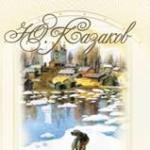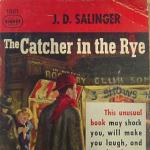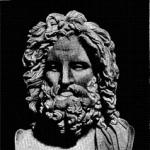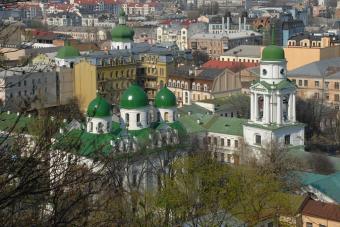| Birsk State Social and Pedagogical Academy (BirGSPA) |
|
| Former names |
Birsk State pedagogical institute |
|---|---|
| Year founded | |
| Reorganized | |
| Legal address | |
| Website | |
About the Academy
Birsk State Social and Pedagogical Academy was founded V 1939 as Birsky Teachers' Institute based on Birsky pedagogical school, With 1952 transformed into a pedagogical institute. IN 2005 the academy got its due modern name and status.
- In accordance with Order of the Ministry of Education and Science of the Russian Federation No. 95 dated February 9, 2012, the Federal State Budgetary Educational Institution of Higher Professional Education BGSPA was included in the Bashkir State University as its structural subdivision as the Birsk branch of the Bashkir State University.
The Academy has 7 faculties and 1 institute: physics and mathematics; philological; biology and chemistry; foreign languages; childhood pedagogy; technology and art education; physical culture; social and humanitarian institute.
BirGSPA has sufficient material basis for successful work. There are 7 educational buildings, 5 dormitories, a library, 2 sports training bases, sports camps "Friendship" and "Shamsutdin", an agrobiological station, an arboretum, an art gallery, a museum of the history of the academy, a museum of the Bashkir writer Kh. Davletshina, a zoo museum, winter garden. A pedagogical lyceum was established at the academy (1991).
Over the years, G.G. worked as rectors of the pedagogical institute. Neizvestnykh (since 1950), G.N. Fatikhov (1954-56, 1960-62), I.A. Zotov (since 1956), M.B. Murtazin (since 1958), F.V. Sultanov (since 1962), K.Sh. Akhiyarov (since 1963), M.I. Garipov (since 1989). WITH 1995 The academy is headed by S.M. Usmanov.
Training is conducted on a full-time and part-time basis in 27 specialties and areas. Over the 65-year period, the academy has trained more than 25 thousand teachers. Training and scientific work provide 276 full-time teachers, 65% of whom have scientific titles.
International, all-Russian and regional scientific and practical conferences are regularly held. The Academy operates an Information Center for Foreign Relations. Academy scientists actively collaborate with the German cultural center "Goethe" (Germany), with the Department of Slavic Philology at Baylor University (USA), with universities in the UK, Australia, India and the Netherlands.
BirGSPA successfully runs postgraduate courses in various fields of science: physics and mathematics, chemistry, biology, philology, pedagogy (12 specialties in total). Research is carried out on the basis of three problem scientific laboratories and nine scientific schools. The institute has become a habit of holding student scientific conferences; the 45th such conference has already taken place.
Faculties
- Social and Humanitarian Institute
- Faculty of Physics and Mathematics
- Faculty of Biology and Chemistry
- Faculty of Philology
- Faculty of Foreign Languages
- Faculty of Childhood Pedagogy
- Faculty of Technological and Art Education
- Faculty of Physical Education
Links
| Birsk branch of Bashkir State University (Bash State University) |
|
| Former names | |
|---|---|
| Year founded | |
| Reorganized | |
| Legal address | |
| Website | |
About the Birsk branch of the Bashkir State University
IN 1939 1952 2005
Physics and mathematics; Russian philology and foreign languages; biology and chemistry; childhood pedagogy; technology and art education; physical culture; social and humanitarian.
Charitable Foundation of Bashkir State University
Over the years, G.G. worked as rectors. Neizvestnykh (since 1950), G.N. Fatikhov (1954-56, 1960-62), I.A. Zotov (since 1956), M.B. Murtazin (since 1958), F.V. Sultanov (since 1962), K.Sh. Akhiyarov (since 1963), M.I. Garipov (since 1989). WITH 1995
Training is conducted on a full-time and part-time basis in 27 specialties and areas. Over the 65-year period, the academy has trained more than 25 thousand teachers. Training and scientific work are provided by 276 full-time teachers
BirGSPA successfully runs postgraduate courses in various fields of science: physics and mathematics, chemistry, biology, philology, pedagogy (12 specialties in total). Research is carried out on the basis of three problem scientific laboratories and nine scientific schools. The institute has become a habit of holding student scientific conferences; the 45th such conference has already taken place.
| Birsk State Social and Pedagogical Academy (BirGSPA) |
|
| Former names |
Birsk State Pedagogical Institute |
|---|---|
| Year founded | |
| Reorganized | |
| Legal address | |
| Website | |
About the Academy
Birsk State Social and Pedagogical Academy was founded V 1939 as the Birsk Teachers' Institute on the basis of the Birsk Pedagogical College, with 1952 transformed into a pedagogical institute. IN 2005 The academy received its modern name and status.
- In accordance with Order of the Ministry of Education and Science of the Russian Federation No. 95 dated February 9, 2012, the Federal State Budgetary Educational Institution of Higher Professional Education BGSPA was included in the Bashkir State University as its structural subdivision as the Birsk branch of the Bashkir State University.
The Academy has 7 faculties and 1 institute: physics and mathematics; philological; biology and chemistry; foreign languages; childhood pedagogy; technology and art education; physical culture; social and humanitarian institute.
BirGSPA has sufficient material basis for successful work. There are 7 educational buildings, 5 dormitories, a library, 2 sports training facilities, sports camps "Friendship" and "Shamsutdin", an agrobiological station, an arboretum, an art gallery, a museum of the history of the academy, a museum of the Bashkir writer Kh. Davletshina, a zoo museum, and a winter garden. A pedagogical lyceum was established at the academy (1991).
Over the years, G.G. worked as rectors of the pedagogical institute. Neizvestnykh (since 1950), G.N. Fatikhov (1954-56, 1960-62), I.A. Zotov (since 1956), M.B. Murtazin (since 1958), F.V. Sultanov (since 1962), K.Sh. Akhiyarov (since 1963), M.I. Garipov (since 1989). WITH 1995 The academy is headed by S.M. Usmanov.
Training is conducted on a full-time and part-time basis in 27 specialties and areas. Over the 65-year period, the academy has trained more than 25 thousand teachers. Training and scientific work are provided by 276 full-time teachers, 65% of whom have scientific titles.
International, all-Russian and regional scientific and practical conferences are regularly held. The Academy operates an Information Center for Foreign Relations. Academy scientists actively collaborate with the German cultural center "Goethe" (Germany), with the Department of Slavic Philology at Baylor University (USA), with universities in the UK, Australia, India and the Netherlands.
Material from Cyclopedia
| Birsk branch of Bashkir state university
(Bash State University) |
|
| Former names |
Birsk State Social and Pedagogical Academy |
|---|---|
| Year founded | |
| Reorganized | |
| Legal address | |
| Website | |
55.4118 , 55.5254 55°24′42.48″ n. w. 55°31′31.44″ E. d. / 55.4118° N. w. 55.5254° E. d.(G) (O) (I)
The Birsk branch of the Bashkir State University was founded V 1939 under the name Birsk Teachers' Institute based on the Birsk Pedagogical College, with 1952 transformed into a pedagogical institute. IN 2005 The academy received its modern name - the Birsk branch of the Bashkir State University.
- In accordance with Order of the Ministry of Education and Science of the Russian Federation No. 95 dated February 9, 2012, the Federal State Budgetary Educational Institution of Higher Professional Education BGSPA was included in the Bashkir State University, as its structural division as the Birsk branch of the Bashkir State University.
The university has 7 faculties: physics and mathematics; domestic philology and foreign languages; biology and chemistry; childhood pedagogy; technology and; physical culture; social and humanitarian.
IN Charitable Foundation of Bashkir State University there is all the necessary material basis for teaching students, including 7 educational buildings, 5 dormitories, a library, 2 sports training bases, sports camps “Friendship” and “Shamsutdin”, an agrobiological station, an arboretum, an art gallery, a museum of the history of the academy, a museum of a Bashkir writer Kh. Davletshina, zoomuseum, winter garden. The Pedagogical Lyceum at the Academy has been teaching students since 1991.
Over the years, G. G. Neizvestnykh (since 1950), G. N. Fatikhov (1954-1956, 1960-1962), I. A. Zotov (since 1956), M. B. worked as rectors of the pedagogical institute. Murtazin (since 1958), F.V. Sultanov (since 1962), K. Sh. Akhiyarov (since 1963), M.I. Garipov (since 1989). WITH 1995 The academy is headed by S. M. Usmanov.
Education at the university is conducted on a full-time and part-time basis in 27 specialties and areas. In total, over a 65-year period, the academy (universities) has trained more than 25 thousand teachers. Training and scientific work are provided by 276 full-time teachers, of which 38 are doctors and 140 candidates of science (2010).
The Academy hosts international, all-Russian and regional scientific and practical conferences, and operates an Information Center for Foreign Relations. Academy scientists actively collaborate with the German cultural center “Goethe” (Germany), with the Department of Slavic Philology at Baylor University (USA), with universities in the UK, Australia, India and the Netherlands.
The first in Bashkiria
Birsk, as one of the centers of the national Russian-speaking teacher education in the Ufa province, began to develop since the 60s of the 8th century. Until the 30s, it did not have secondary educational institutions. Only in 1839 With money raised by the merchants, nobility and bureaucrats, two schools were opened in the city - a district school and a parish school. In October 1862 A pedagogical class was opened at the Birsk District School, which became, according to the Ufa researcher T.M. Aminov, the first pedagogical educational institution in Bashkiria. From January 1, 1870 classes there ceased due to a lack of people willing to study.In 1909 Pedagogical courses in Birsk were restored again. They trained teachers for Russian-foreign schools. The courses were accepted for boys and girls of any religion, not younger than 15 and not older than 22 years old, having a certificate of completion educational institution not lower than a two-year school. In October 1881 State Council Russian Empire approved the decision: “To establish a teacher’s school in the city of Birsk, Ufa province...”. The official opening of the school took place on October 3, 1882.The city of Birsk was not chosen by chance as the place to open a foreign school. The largest number of pagans, primarily Mari, lived in Birsky district. In the 80-90s ΧIΧ century. With the consent of the trustee of the Orenburg educational district, the pedagogical council of the Birsk Foreign Teachers' School (BIUSH) made a number of changes to the admission rules and curriculum of the school. Since 1888 Russian youths began to be accepted here, for whom teaching the Mari language was introduced in 1890. In the second half of the 90s ΧIΧ century. The pedagogical council of BIUSH has set a course for rapprochement curricula with the programs of the Annunciation Teachers' Seminary. This process was completed by the end of the 19th century.The activities of BIUSH, despite its limitations, were quite noticeable. By 1917 it trained over 300 teachers for Russian-foreign schools and continued to function after October 1917. Only in 1918 it was transformed into the Mari teachers' seminary. IN Civil War The leadership of the People's Commissariat for Education of the Ufa province decided to downgrade the status of this educational institution due to devastation. In the autumn of 1919 A decree was issued on the basis of which the Birsk Mari Seminary was transformed into Mari pedagogical courses. A new building was found for pedagogical courses - a monastery building in the village of Nikolo-Berezovka. In 1921 The courses were transformed into a pedagogical technical school. In 1924 The technical school was returned to Birsk and functioned until 1931. During 1927-1940 academic years The Birsk Bashkir Pedagogical College trained 870 teachers.The Birsk Teachers' Institute (BUI) was created on the basis of the Birsk Bashkir Pedagogical College by decree of the Council of People's Commissars of the RSFSR dated June 27, 1939 No. 318. Its teaching staff was recruited in 1939 by the former director of the technical school A. Akchurin, who became the first deputy. BUI Director for Academic Affairs. 3 departments were opened: history, physics and mathematics, Russian language and literature. The duration of training was 2 years. The institute trained teachers for grades 5-7 in secondary schools. 19 and a half full-time teaching staff and 9 laboratory assistants were approved. The first director of the BUI (in 1939-1941) was P.M. Chugunkin. By September 1, 1939 290 full-time students were enrolled.In December 1939 Departments of Marxism-Leninism, pedagogy, history, physics and mathematics, Russian language and literature were opened. Summer 1940 appeared correspondence department. In June 1941 The institute graduated its first specialists: 19 teachers of history, 19 teachers of physics and mathematics, 26 teachers of Russian language and literature. In June 1940 The director of the BUI established the post of another of his deputy - for the correspondence department. Among the first was N.A. Shergin.In September 1941 The Oryol Pedagogical Institute was evacuated to Birsk. It was merged with BUI, as a result of which a new university was formed - the Birsk Pedagogical Institute, retaining the teacher's institute in its structure. BirSPI (the university had this name until 1945) had the following faculties: physics and mathematics, natural sciences, and geography. The structure of the teachers' institute at BirSPI included physics and mathematics, history, philology, and natural geography departments. The duration of study at the pedagogical institute was four years, at the teacher's institute - two. Became the head of BirSPI former director Orel Pedagogical Institute A.A. Ovchinnikov (in 1941-1943)The Great Beginning Patriotic War made significant adjustments to the administrative composition of the BUI. June 24, 1941 its director P.M. Chugunkin was mobilized into the Red Army. After the end of the war, he did not return to the institute; he worked in public education bodies in a number of regions of the BASSR. The duties of the director of the institute were assigned to his deputy A.Kh. Akchurin.Foreign language courses and military-physical training courses became separate structural units. By the end of 1941 Two professors and eight associate professors have already worked within the walls of BirSPI, which amounted to 28 percent of total number teachers of BirSPI. In December 1941 The first enrollment of students was carried out for two-year foreign language courses in the specialties " German" And " English language" The Great Patriotic War complicated, but did not stop, the educational process at the university. In June 1942 The Teachers' Institute at BirSPI carried out its second graduation: 5 history teachers, 6 physics and mathematics teachers, 7 Russian language and literature teachers.Since 1945, a preparatory department has been operating at the BUI. In 1951 its new director G.G. Neizvestnykh unites the philological and historical departments.In 1952 By order of the Minister of the RSFSR, the BUI was re-transformed into a pedagogical institute. The new university has two faculties left: philology and physics and mathematics. In 1952-1954 The natural-geographical and historical departments were eliminated without any serious arguments. The first rector of the pedagogical institute was G.G. Neizvestnykh. In 1941-1948 BUI trained 717 teachers: 178 of Russian language and literature, 72 of Tatar language and literature (the Tatar language course was introduced at BUI in 1942), 166 of history, 156 of physics and mathematics, 145 of natural sciences.
The teachers who worked at the BUI in the 40-50s of the 20th century left a good memory of themselves. At the Department of History - Z.A. Aminev (later Doctor of Historical Sciences and Professor of BSU), M.D. Burlakov, Z.A. Akchurina, M. Michmenov, G.I. Guzhvenko (Associate Professor, Candidate of Historical Sciences, in the 30s e XX century, dean of the history department of the Bashkir State Pedagogical Institute, died in the early 90s of the XX century and was buried in Birsk), G.G. Gilev (later for a long time worked within the walls of BirSPI). At the Department of Pedagogy - G.G. Galieva, P.P. Raisky, H.A. Teregulova, Z.N. Murzakova, M.M. Mingaleeva. At the Department of the Fundamentals of Marxism-Leninism - E.D. Popova (university veteran), E.M. Chudinov (later Doctor of Philosophy and Professor of Moscow universities), Associate Professor A.M. Stepanov. At the Department of Russian Language and Literature - N.D.Yakovlev, L.A.Ponomarenko, Associate Professor P.G.Ivanov, A.M.Kropacheva, N.V.Shachkova, Z.M.Chirkova, G.M.Tsvaig, V.G.Gilmiyarov, N.V.Gilmiyarova. At the Department of Physics and Mathematics - Z.G.Batrshin, E.L.Mokrushin, B.Kh.Akhmadiev, N.S.Akatyev, G.S.Shamsutdinova, N.P.Razzadorin. At the Department of Natural Science and Geography - Associate Professor S.A. Baranov (in the 30s, Associate Professor of the Faculty of Biology and Chemistry of the Bashkortostan State Pedagogical Institute), G.S. Baranova, V.G. Chernichin, N.F. Yamshchikova.Only good memories were left by veterans - foreign language teachers N.L. Zilbershtein, L.S. Orelius, F.M. Ivanova, E.A. Matveeva. In the 50s, their baton was picked up by the former chemist G.S. Baranova and F.G. Nizamutdinova, who taught German in all departments.Among the veterans are teachers of physical education I.D. Bezrukov, who worked within the walls of the university for more than 25 years, Tatar language and literature - V.G. Gilmiyarov and M.G. Faizullina, Bashkir language and literature - G.Z. Ramazanov and Z. G. Gumerov.
Y. SERGEEV, associate professor, Head of the Department of Documentation Science.





